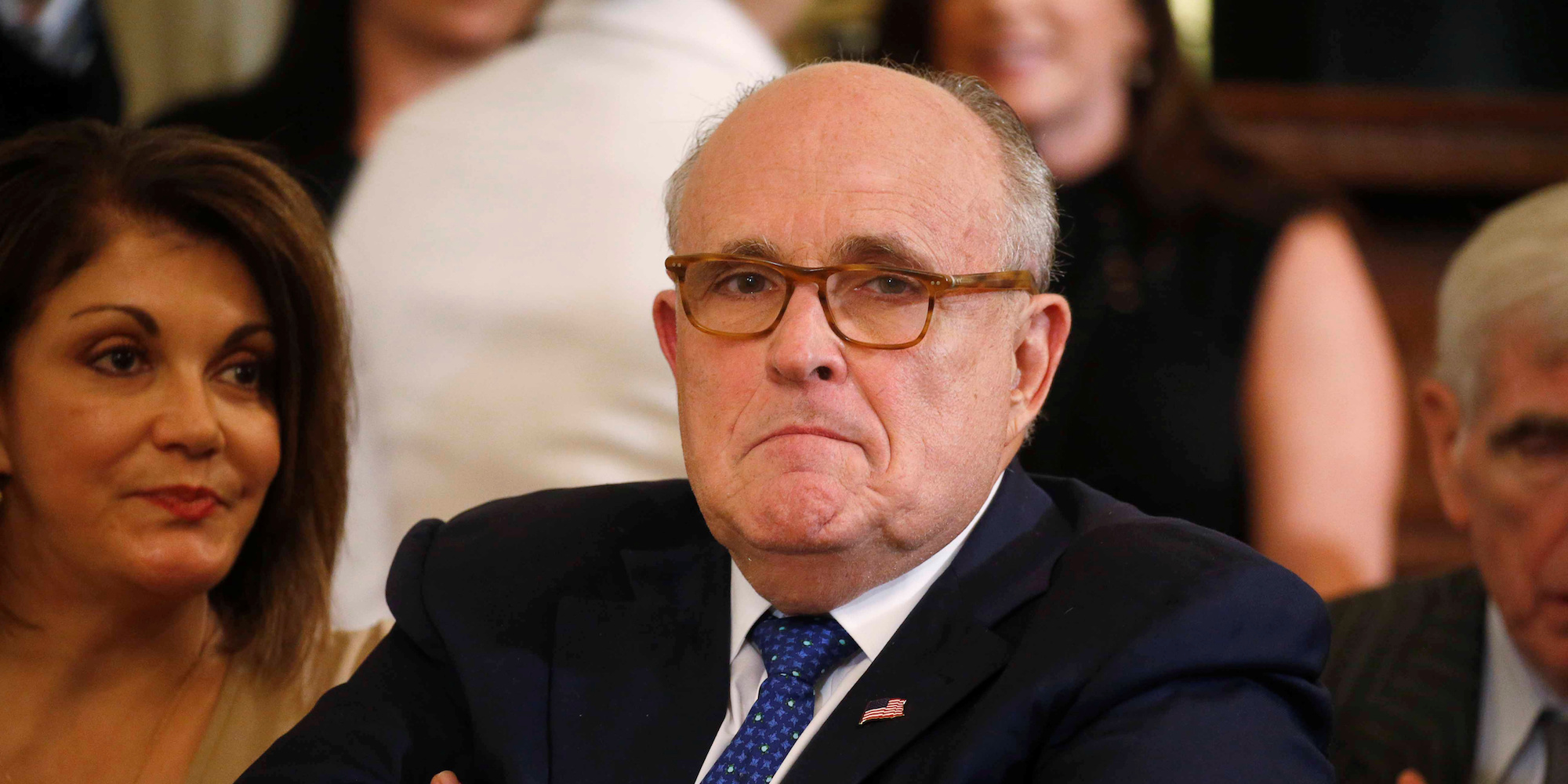- Rudy Giuliani on Monday claimed collusion is not a crime in connection with the investigation into Russian election interference in 2016.
- But experts say his comments were misleading.
- Conservative media figures have made similar cases regarding collusion in the past as well.
- Collusion is not a legal term, but the term could be used to describe certain interactions between a presidential campaign and a foreign government that are illegal under existing statutes.
Rudy Giuliani, the attorney for President Donald Trump, claimed Monday that collusion is “not a crime,” in relation to investigations into Russian election interference and whether any Trump associates colluded with Russian officials to try to tip the scales in Trump’s favor.
Experts say his comments are misleading and miss the larger point of the special counsel Robert Mueller’s investigation.
“I have been sitting here looking in the federal code trying to find collusion as a crime,” Giuliani said during a “Fox & Friends” interview. “Collusion is not a crime.”
“I don’t even know if that’s a crime – colluding with Russians. Hacking is the crime. The president didn’t hack. He didn’t pay for the hacking,” he said during a subsequent interview with CNN.
GIULIANI argues ***collusion is not a crime***: "I don't even know if that's a crime -- colluding with Russians. Hacking is the crime. The president didn't hack! He didn't pay for the hacking." pic.twitter.com/QMenE1qzxx
— Aaron Rupar (@atrupar) July 30, 2018
Trump has long maintained there was "no collusion" between the Kremlin and his campaign. But Giuliani went further, seemingly contending that it wouldn't be illegal in any case, echoing similar cases on collusion from conservative media figures in the past.
'It's a red herring by Giuliani'
"Collusion" is not explicitly cited in US legal code. But certain interactions between a presidential campaign and a foreign government could be illegal under existing statutes, experts say.
"It's a red herring by Giuliani," Bradley P. Moss, a Washington, DC-based lawyer specializing in national security, told Business Insider.
He noted that the term "collusion" doesn't appear in the memo from Deputy Attorney General Rod Rosenstein appointing Mueller as special counsel.
"Mueller isn't investigating 'collusion.' He is investigating possible coordination between the campaign and the Russians, particularly any actual crimes committed in the context of that coordination," Moss said.
Moss said that conspiracy to defraud the US is a crime, under 18 USC 371.
"Underlying offenses would likely be tied up in criminal provisions regarding campaign finance laws or computer hacking. For the conspiracy charge to succeed, it is not required that every participant in the conspiracy play the same substantive role," he said.
Alex Whiting, a law professor at Harvard and former federal prosecutor, told Business Insider that "there is no crime of 'collusion' but as Giuliani well knows there are plenty of potential crimes within the act of collusion."
"Russian companies and individuals have been charged with conspiracy to defraud the United States as a result of their alleged acts of election interference and hacking and distribution of emails," Whiting added. "If American citizens knowingly assisted these efforts, which could be described as 'collusion,' they could also be charged with conspiracy to defraud the United States."
Whiting also said there are potential campaign violations that could be charged, "in particular prohibitions on foreign contributions to campaigns, if it were discovered that Americans 'colluded' with Russians to interfere with the campaign."
Asha Rangappa, senior lecturer at the Jackson Institute for Global Affairs at Yale University and former FBI special agent, expressed similar sentiments on Monday in an appearance on CNN and via Twitter.
"Conspiracy and aiding and abetting are forms of collusion that are indeed a crime. And even if there are some acts of collusion that don't meet a criminal definition, 'colluding about the Russians' IS STILL A PROBLEM," she said.

